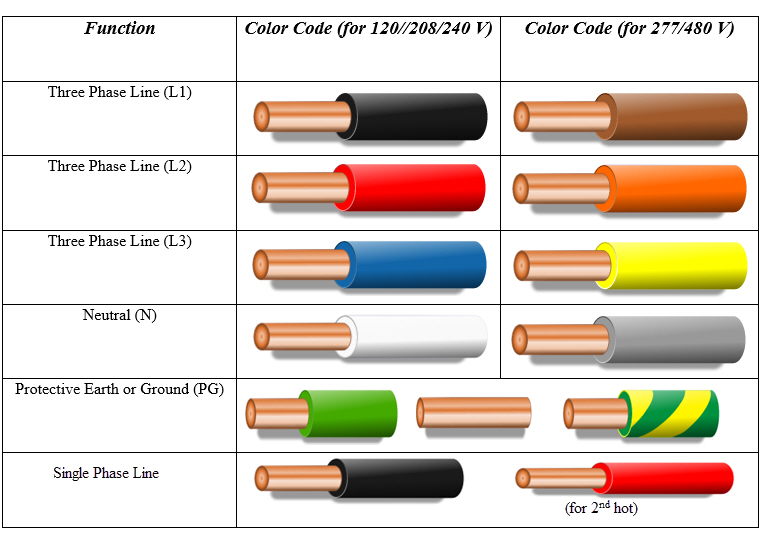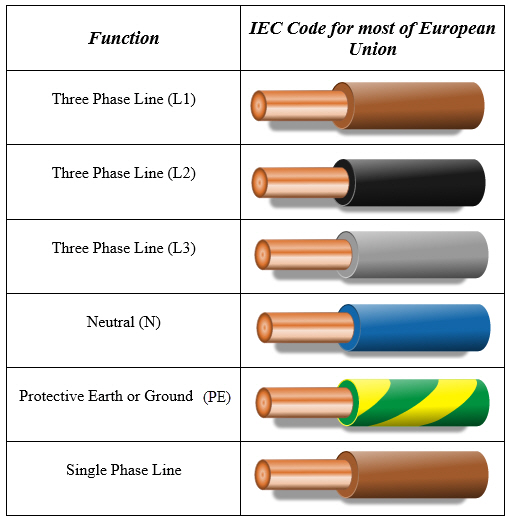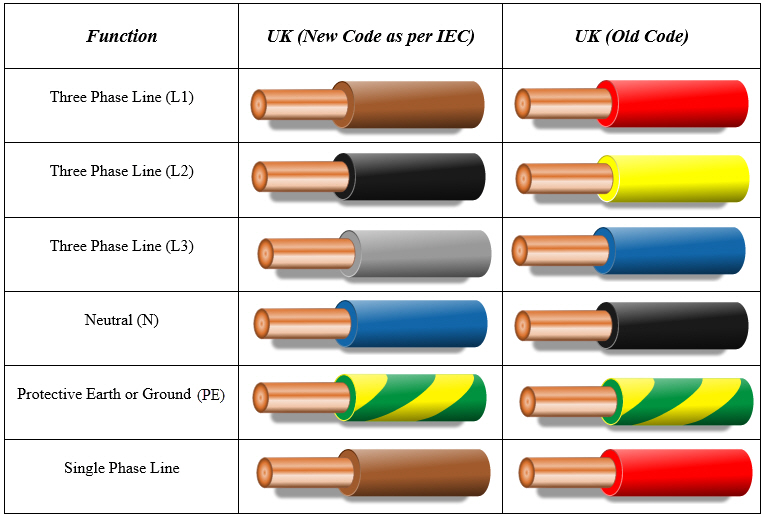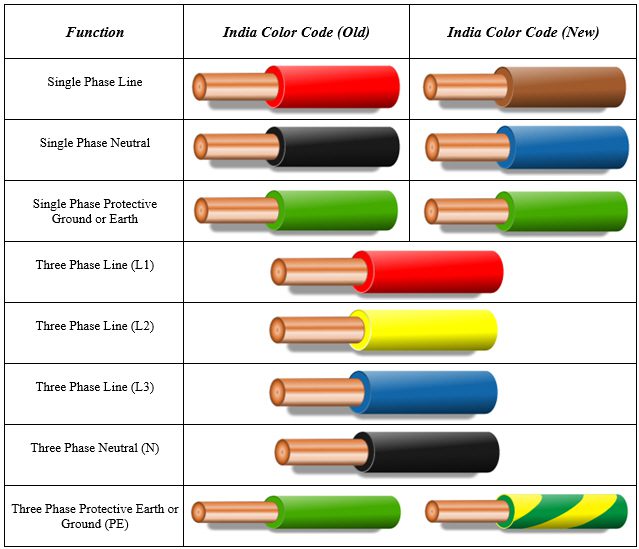Actually, in order to use the electric power at our homes, three important process are involved. They are generation of electricity at power plants, transmission of the generated power through transmission lines and distribution at the residence and industries. Once it is distributed to our homes, we can use it to power up different appliances. In order to use the electricity in our homes, a proper wiring is required. The collection of Electrical wiring and electrical devices like switches, sockets, meters and fittings is called Electrical Installation or Building Wiring. An electrical wire is a single solid or twisted Copper or Aluminum conductor with or without any insulation. Each wire used for electrical wiring is marked with information like wire gauge, ampacity, maximum voltage, and maximum temperature. But a general color code is used to identify different types of conductors which are used in electrical wiring. We know that the power can be in either single – phase or three – phase. Depending on the phase of the power supply, different colored wires are used for different voltages. In case of a single phase power supply, there are three wires one each for line, neutral and protective ground. In case of a three phase power supply, there are three wires for lines, one for neutral and one for protective ground. With the help of color codes of electrical wires, they can be easily and safely identified. There are some safety measurements that are to be followed while dealing with electrical wiring and the color codes of wires will help in implementing those safety measurements as a single code is followed in that particular jurisdiction. Depending on the local rules and laws, different jurisdictions have different views on color coding of the wires. Some color codes for electrical wiring are mandatory while some are optional. There are some standards like IEC (International Electro technical Committee) for most of the European Union, National Electrical Code for the US, Canadian Electric Code for Canada etc. Understanding of these electrical wiring color codes is important as the properties of different wire may be different from other and wrongful placement or connections may be hazardous. Some of the standard color codes that are used in electrical wiring are described below.
NEC Color Code for US
The United States National Electrical Code (US NEC) has made mandatory color code for neutral power conductors and protective ground conductor. Apart from these mandatory colors, any color can be used for line or hot power conductors. The common color code for three phase in, on or behind the wall electrical wiring is shown below.
In three phase power supply, the combination of Black, Red and Blue wires for power conductors are used for 120/240V AC whereas the combination of Brown, Orange and Yellow wires for power conductors are used for 277/480 V AC. In case of single phase power supply, Black wire is used as the line wire and in case of 220V supply, Red wire is used as the secondary line conductor.
IEC Color Code for most of the European Union (Including UK from 2004)
Most of the European Countries follow the International Electro-technical Commission’s electrical wiring color code. United Kingdom had its own color code until 2004. But from March, 2004, the UK started following the IEC color code.
In the old IEC color code, all the lines in three phase supply are either brown or black. This created a lot of problem. Hence, the new color code is introduced. UK started using the IEC code from March, 2014. Before that, it had its own code for electrical wiring. The old color code in UK (until 2004) is shown below.
CEC Color Code for Canada The Canadian Electric Code governs the electrical wiring color code for Canada. The color code practice is very similar to that of the US because of the harmonization effect. Only White is used for Neutral conductor and Green and bare conductor is used for protective ground.
India
The standard for electrical wiring color code in India is as follows. According to the old standard, Red is used for live (or line) power conductor, Black for neutral and Green for protective earth or ground. The new color code is introduced recently (although the old convention is pretty much still widely used). In the new color code for electrical wires, Brown is used for live (or line), Blue is used for neutral conductor and Green for earth. In case of a three phase power supply, the combination of Red, Yellow and Blue are used for the active line power conductors, Black color for neutral conductor and Green or Green – Yellow for protective ground.
All the above mentioned color code for electrical wiring is to transmit AC current from the mains. In case of wiring DC power, like solar or computer networks, the following standard has to be followed.
IEC DC Power Wiring Color Code
DC power installations can be divided into earthed or unearthed systems. The following table describes the color code for DC power according to IEC standard.
NEC Color Code for the US in DC Power Electrical Wiring
Similar to the AC power systems, the NEC also has suggested a mandatory color code for neutral conductor and protective earth or ground. In case of neutral conductor, the color can be White or Grey and for protective earth, the color is Green, Green – Yellow or Bare conductor. There is no recommended color code for unearthed (or ungrounded) systems as they are not entertained due to safety issues. But generally, Red is used for positive and Black is used for negative wires in case of 2-wire unearthed DC power system. The following table describes the color code for DC power electrical wiring in the US.
Comment * Name * Email * Website
Δ














![]()